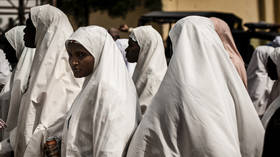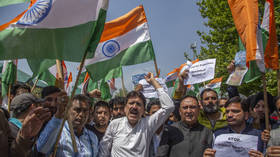Deaths in Nigeria after aid distribution stampede

At least seven people were killed in a stampede that occurred during the distribution of aid over the weekend in the city of Bauchi in northeastern Nigeria, local media reported on Monday, citing the West African nation’s authorities.
Ahmed Wakilin, the Bauchi police command’s spokesman, said in a statement published by local outlets that the victims included four women and three girls, ranging in age from eight to 55. Six of them were declared dead at the Abubakar Tafawa Balewa University Teaching Hospital, while the other died at home, police said.
The chaos broke out on Sunday when a crowd of residents gathered at the Shafa Holdings Company to reportedly receive 5,000 naira ($3.70) each at a charity event organized by a philanthropist. Such programs are mostly held during the Islamic holy month of Ramadan, when Muslims are encouraged to give to charity.
The authorities have said they are now investigating the cause of the incident.
The Bauchi stampede comes just days after some students were injured during the distribution of rice at Nasarawa State University in north-central Nigeria. Last month, the Nigeria Customs Service reported a stampede at its subsidized rice selling point in Yaba, Lagos, that left several dead and others injured.
Africa’s most populous country has been plagued by food insecurity and economic hardship since mid-2023, following President Bola Tinubu’s elimination of fuel subsidies and sweeping exchange rate reform, when he came into office last May. In July, Abuja declared a state of emergency as a result of food shortages and surging prices.
The country’s National Bureau of Statistics (NBS) previously stated that the year-on-year increase in food inflation was caused by price increases in commodities such as oil, yams, bread, cereals, and fish. The NBS reported last week that Nigeria’s inflation rate reached an all-time high of 31.7% in February.














